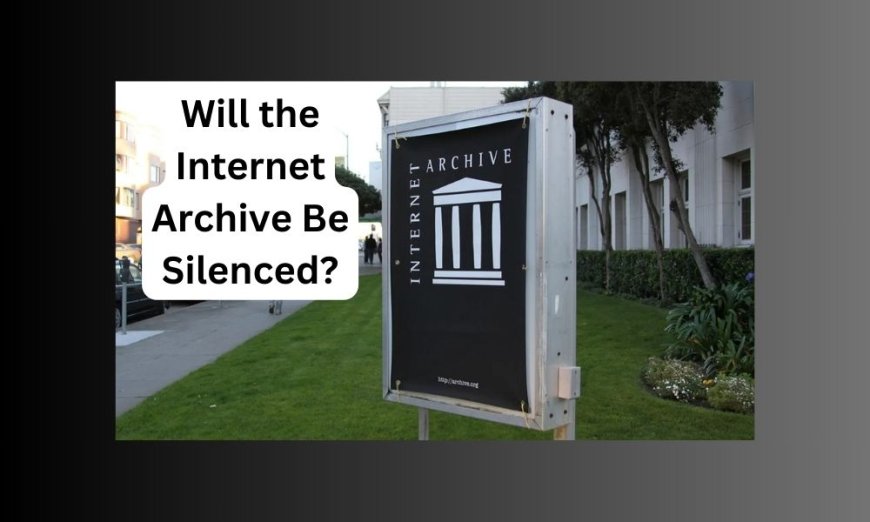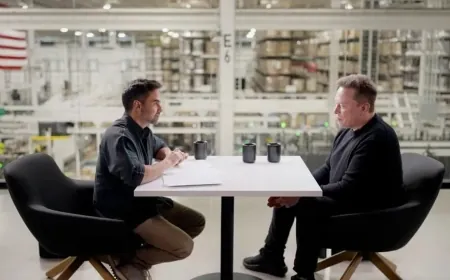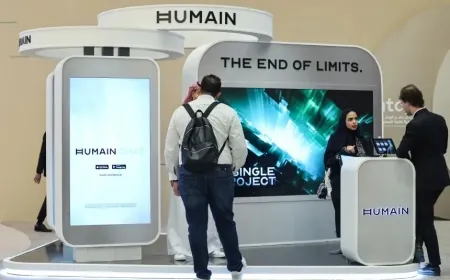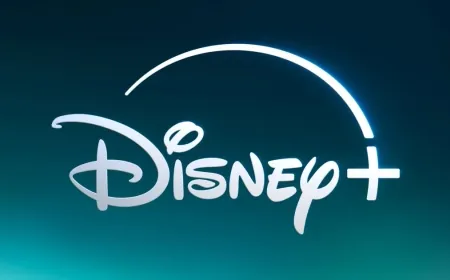Fair Use Under Attack: Court Ruling Threatens Libraries, Research, and Your Right to Read
Internet Archive Appeal Draws Widespread Support: Friends of the Court Briefs Highlight Fair Use Arguments

The Internet Archive has been met with a tidal wave of support in its fight against Hachette. Prominent library and nonprofit organizations, alongside hundreds of librarians and academics, have come together to file "friend of the court" briefs in the Second Circuit appeal. These diverse voices paint a compelling picture, uniting behind the belief that the Archive's legal position deserves to triumph. Dive deeper into their persuasive arguments to understand why a restrictive ruling could have far-reaching consequences for libraries, access to information, and the very foundations of fair use.
The American Library Association (ALA) and Association of Research Libraries (ARL) have thrown their weight behind the Internet Archive in its fight for Controlled Digital Lending (CDL). Their powerful argument boils down to two key points:
1. CDL is an Educational Lifeline, Not a Commercial Threat:
The brief emphasizes that CDL is essentially an extension of traditional library lending, but in the digital realm. It allows libraries to lend digital copies of their books, just like physical ones, for educational purposes. This non-commercial nature, they argue, makes it a clear case of fair use, protected by copyright law.
2. A Ripple Effect on Everyday Library Practices:
The ALA and ARL warn that a restrictive ruling against CDL could have far-reaching consequences for libraries beyond just e-books. They point out that fair use underpins everyday library practices, from digitizing materials for preservation to offering online access to research databases. A blow to CDL could set a dangerous precedent, hindering these vital services and ultimately limiting access to information for all. Read the entire brief by clicking here.
Authors Align with Libraries: A Surprising Twist in the eBook Lending Battle
The Authors Alliance, an organization representing thousands of writers, has filed a brief in support of the Internet Archive and its controversial Controlled Digital Lending (CDL) program. This unexpected voice of support shatters stereotypes and reignites the debate about access to information in the digital age.
Beyond Book Sales:
While authors naturally benefit from book sales, the Authors Alliance brief argues that CDL presents a unique opportunity for wider readership and engagement. "Libraries should be able to lend digital copies of our books, just like they lend physical ones," the brief states. This accessibility, they argue, allows readers to discover new authors and formats, potentially leading to future purchases and deeper connections with their work.
Evolution, Not Exploitation:
The brief further emphasizes that the copyright system shouldn't stifle innovation or impede libraries' ability to adapt to technology. "Requiring libraries to pay for digital copies on top of physical ones," they argue, "creates an unnecessary barrier to access, especially for out-of-print or hard-to-find works. Read the entire brief by clicking here.
No Choice Between Knowledge and Privacy: Privacy Groups Champion Digital Lending
The Center for Democracy & Technology, Library Freedom Project, and Public Knowledge have joined the fight for the Internet Archive's Controlled Digital Lending (CDL) program. Their focus? The crucial intersection of accessibility and privacy in the digital age.
Privacy Paradox at the Library Door:
The brief argues that readers shouldn't face the impossible choice between accessing information and protecting their privacy. Traditional libraries offer a haven for anonymous knowledge seeking, and CDL extends this same principle to the digital realm. By eliminating the need for invasive tracking or personal data collection, the program ensures privacy and inclusivity for all, especially those with disabilities or facing limited access to physical libraries.
CDL: A Safe Space for Learning:
The brief highlights how CDL fosters a secure environment for information discovery and exploration. With digital lending, readers can delve into new books or revisit old favorites without leaving a digital trail. This privacy-conscious approach empowers individuals to engage with knowledge freely, without fear of surveillance or data misuse. Read the entire brief by clicking here.
The Internet Archive: Friend or Foe of Free Speech? Copia Institute Weighs In
The Internet Archive's controversial digital lending program just got tangled in the First Amendment battleground. The Copia Institute, a non-profit dedicated to the free flow of information, has filed a brief arguing that the lower court's ruling against the Archive threatens the very foundations of free speech.
Copyrights vs. Constitution: A clash of values?
The Copia Institute's brief argues that the district court's decision misconstrued the purpose of copyright law. Instead of simply protecting profits, copyright should also promote access to knowledge and foster a robust public domain. In this case, the Internet Archive's CDL program simply expands access to lawfully acquired books, something copyright should celebrate, not punish.
Silencing Readers, Stifling Progress:
Restricting access to information, even digital copies, the brief argues, hinders intellectual engagement and stifles public discourse. The Internet Archive offers a vital platform for exploring diverse perspectives and discovering new voices. Silencing such a platform, under the guise of copyright protection, ultimately harms the very progress that copyright aims to encourage. Read the entire brief by clicking here.
Scholars Sound the Alarm: Libraries Under Threat in Digital Lending Battle
Eleven leading copyright scholars have thrown their weight behind the Internet Archive in its fight for Controlled Digital Lending (CDL), raising the stakes in this critical battle for libraries and access to information. Their powerful brief warns that the district court's ruling against CDL threatens the very core functions of libraries, potentially silencing the bookshelves of the digital age.
Libraries Under Siege:
The scholars argue that restricting CDL would cripple libraries' ability to fulfill their essential mission: acquiring, preserving, and sharing information. With rising costs and limited budgets, libraries rely on CDL to provide affordable access to digital materials, especially out-of-print or hard-to-find works. Without CDL, this vast reservoir of knowledge risks becoming locked away, inaccessible to students, researchers, and everyday readers.
Public Harm vs. Publisher Profits:
The brief contends that the district court prioritized publisher profits over the public good. While copyright protects creators, it shouldn't become a barrier to knowledge. CDL provides a legal and responsible way for libraries to fulfill their public service mandate, promoting literacy, scholarship, and lifelong learning. Silencing this critical resource inflicts a far greater harm on society than any perceived benefits to publishers.
A Beacon of Hope in the Digital Desert:
In a landscape rife with misinformation and limited access to diverse perspectives, the Internet Archive stands as a shining beacon of knowledge. Its CDL program empowers individuals to explore countless voices and ideas, fostering intellectual growth and critical thinking. Shutting down this vital platform would not only hinder access to information but also stifle the vibrant exchange of ideas that is essential for a healthy democracy. Read the entire brief by clicking here.
Libraries Take a Stand: Upholding CDL, Preserving a Legacy of Open Access
A chorus of voices rises from the heart of libraries across the nation, echoing in support of the Internet Archive's Controlled Digital Lending (CDL) program. This isn't just a legal battle; it's a fight for the soul of libraries in the digital age. Over 200 librarians and library organizations have joined forces to file a powerful brief, not just arguing the law, but weaving a compelling narrative of innovation and evolution. Their message is clear: CDL isn't some niche experiment; it's the lifeblood of modern library service, and restricting it would be a devastating blow to communities everywhere.
From Seed to Forest: The Deep Roots of CDL
This brief isn't a dry legal document; it's a testament to the library's spirit of adaptability and evolution. CDL wasn't born overnight; it grew organically from a pilot program, nurtured by the needs of libraries and patrons alike. Today, it's deeply embedded in the everyday operation of over 100 libraries across the country. Imagine requesting that out-of-print book or reserve material and having it land instantly on your e-reader – that's the magic of CDL. It's like interlibrary loan, but faster, more efficient, and democratized for everyone, from students yearning for new voices to researchers delving into forgotten works.
Damming the River of Knowledge: The Consequence of Disruption
Banning CDL wouldn't just hinder digital access; it would create knowledge deserts, leaving entire communities stranded on the wrong side of an information divide. Students, researchers, and lifelong learners would be denied the chance to explore diverse voices and discover new perspectives. It's like locking away certain books in a library, accessible only to a privileged few – a stark betrayal of the library's core mission: equal access to information for all.
Beyond CDL: Protecting a Fragile Ecosystem
The brief warns that the threat goes beyond just saving CDL. Restricting this program could set a dangerous precedent, potentially impacting other essential digital library initiatives like online research databases and e-book platforms. It's a domino effect waiting to happen, threatening the entire ecosystem of equitable access to information.
A Call to Action: Stand with Libraries, Stand with Knowledge
This diverse coalition of librarians and library organizations isn't just defending a technical program; they're fighting for the fundamental right to knowledge for all. Their brief is a powerful reminder that libraries are not relics of the past, but vibrant hubs of learning and discovery in the digital age. Upholding CDL means safeguarding this vital resource, ensuring that the shelves of knowledge remain open and accessible for generations to come. Read the entire brief by clicking here.
HathiTrust Sounds Alarm Over Book Lending Blockade
HathiTrust, a vast digital library, joins the fight against a court ruling that could padlock library doors on online book lending. Their message rings loud and clear: this ruling threatens libraries' ability to share books digitally, turning online shelves into virtual ghost towns.
Not Just One Program: Lending Itself Under Siege
HathiTrust fears the ruling's shadow stretches far beyond a single program. They see it as a potential ban on digital lending altogether, a crippling blow to libraries trying to keep pace with the digital age. Imagine libraries stuck in the past, unable to lend out ebooks or share forgotten treasures online. HathiTrust paints a bleak picture of libraries fading into irrelevance, unable to fulfill their vital role as gateways to knowledge.
Domino Effect: A Digital Landscape at Risk
HathiTrust warns the harm extends further than just lending. This ruling could set a dangerous precedent, jeopardizing other essential digital library initiatives like online databases and ebook platforms. It's like a domino effect waiting to happen, potentially toppling the entire structure of fair and open access to information.
Fair Play, Not Foul Play: Lending Without Harming
HathiTrust challenges the claim that digital lending hurts publishers. They argue these programs actually benefit publishers by introducing readers to new works, potentially leading to future purchases. More importantly, HathiTrust emphasizes that digital lending falls squarely within fair use, providing temporary access for educational purposes, not replacing book sales.
Standing Up for Libraries, Standing Up for Knowledge
HathiTrust adds its voice to the growing chorus of library supporters. Their message is clear: libraries are not dusty relics, but vibrant centers of learning and discovery, keeping knowledge accessible for all. Upholding digital lending means protecting this vital resource, ensuring the shelves of information remain open and accessible for generations to come. Read the entire brief by clicking here.
Legal Experts Say "No Way" to Commercial Label for Lending
A group of legal minds are throwing their weight behind libraries in a major fight against a court ruling that threatens to silence digital shelves. What's got them fired up? The outrageous claim that lending books online, even through a library program like the Internet Archive's CDL, is somehow "commercial."
Non-Profit, Not Profiting: Unmasking the Misunderstood "Commercial" Label
These legal experts are clear: the court got it wrong. They argue that while some fair use cases involve businesses, CDL falls squarely on the side of non-profit, non-commercial activities. It's about libraries doing what they do best – sharing knowledge, not making money.
Libraries, Not Lucrative Businesses: Protecting a Pillar of Education
Imagine a library where borrowing a digital book comes with a hidden price tag. That's the nightmare scenario these experts paint if the court's ruling stands. CDL isn't a money-making scheme; it's a vital tool for libraries to do their job: providing equal access to information for everyone, especially for harder-to-find books.
Beyond CDL: A Domino Effect Threatening Access
These experts warn that the "commercial" label isn't just a slap in the face for libraries; it's a potential threat to the entire digital library ecosystem. If online lending gets branded as "commercial," other crucial initiatives like research databases and ebook platforms could be next. It's like a dangerous domino effect, with open access to information hanging in the balance. These legal experts add their voices to the growing chorus of library supporters. They remind us that libraries are not dusty relics, but vibrant hubs of learning and discovery, open to all. Upholding CDL means upholding fair use, ensuring that the shelves of knowledge remain open and accessible for generations to come. Read the entire brief by clicking here.
Library Scholars Advocate for Controlled Digital Lending (CDL)
In a brief submitted by Kevin L. Smith and William M. Cross, both seasoned scholars in library and information studies, the importance of Controlled Digital Lending (CDL) is emphasized. These experts, with a rich understanding of libraries and archives, position CDL as one among many innovations developed over decades. They stress its adaptability to legal requirements. This case offers a unique opportunity for the Court to affirm that libraries, while adhering to the law, must employ technologies and foster inventive services to enhance broad access to information. Delve into their comprehensive insights by reading the full brief available here.
Support for Digital Libraries from Law Library Advocates
More than 50 law library directors, professors, librarians, and graduate students have joined together to back a brief. They believe that the district court missed considering the good things about Controlled Digital Lending (CDL). The brief talks about how it's not a good idea for libraries to spend public money again and again on the same things instead of getting new stuff. This, they say, doesn't help the public or authors, who are supposed to benefit from copyright. It means people can't get access to many different authors and works, authors don't get as much attention, and there are fewer old works saved for the future. If you want to know more, you can check out the full brief here.
Open Access Giants Slam Court Ruling
Imagine classrooms without key resources, researchers locked out of crucial data, and libraries facing empty digital shelves. This chilling scenario isn't science fiction; it's the potential consequence of a recent court decision that has giants like Wikipedia, Creative Commons, and Project Gutenberg sounding the alarm.
These open knowledge champions aren't just worried; they're up in arms! They warn that if the higher court upholds the lower court's flawed decision, it wouldn't just impact one program – it would create a domino effect threatening fair use for all non-profit organizations. Think teachers unable to share educational materials online, libraries unable to offer out-of-print books digitally, and researchers blocked from vital datasets – all because of legal technicalities gone wrong.
The heart of their argument? The lower court got it wrong, big time. They point out factual errors and misinterpretations of fair use that could restrict access to knowledge for millions. Imagine students, researchers, and entire communities left stranded on the wrong side of the information highway, all because a judge got confused.
But these open access warriors aren't giving up. They're urging everyone to stand up for fair use, the lifeblood of non-profit organizations and a fundamental right for all. From classrooms to libraries to research labs, open knowledge fuels progress, and these giants are determined to keep the flow going. Read the entire brief by clicking here.































































